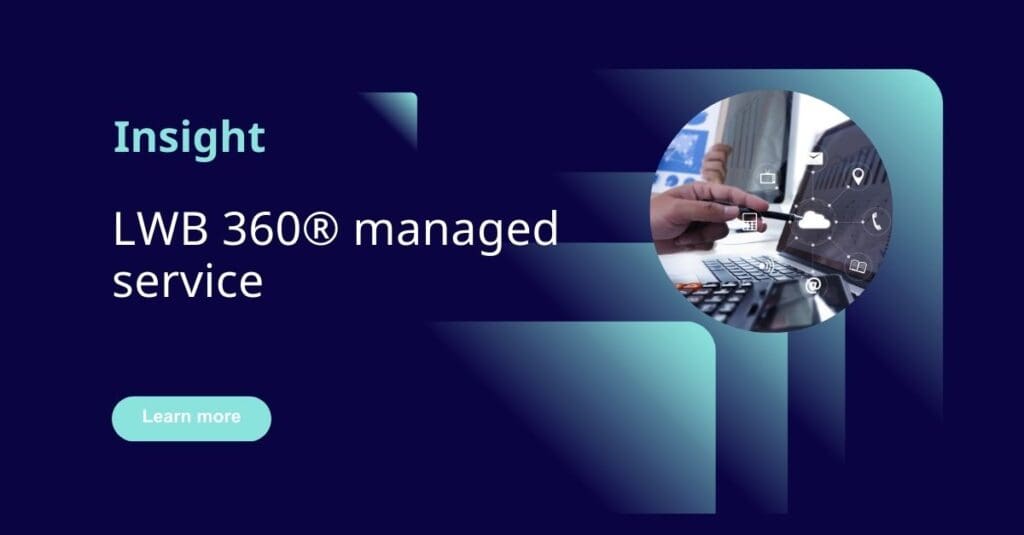In today’s rapidly evolving legislative and technological landscape, government bodies face mounting challenges in unifying segmented systems, with a focus on secure and efficient data management.
These solutions must have the ability to join the dots across legislative systems to provide legislatures with a single source of truth. The benefits are numerous, including:
- increasing transparency into legislative processes
- the ability to offer real-time bill status to members and the public;
- the ability to streamline workflows;
- enhanced data accessibility; and
- modernization of the legislative process.
All of this must be done with robust support in place for legislative systems and their unique operational needs.
As a result, we have witnessed a rise in considerations for hybrid, cloud-based solutions, something which has been adopted by many legislatures already.
Cloud-based Managed Services: Best Foot Forward
A core advantage of hybrid solutions is the ability to deliver cloud-based managed services. This sees the integration process taking place remotely, without the need for in-person, manual installation.
A cloud-based managed service also allows for maintenance of the infrastructure to be carried out remotely. This eliminates the need for legislatures to focus on nurturing and maintaining critical IT skills in-house, while also carrying out overall system management.
Instead, with the right partner who ensures best practices are followed, and who has proven market experience and specialist skills, legislatures can focus on what really matters – the law.
Other benefits of a cloud-based managed service include:
- Scalability
- Efficient data management
- Effective disaster recovery
- Automatic upgrades
- Built-in fault tolerance
- Enhanced security
- Daily backups
Key Considerations for a Successful Integration Processes
1. Inventory Process
The first step in a robust integration process is conducting a comprehensive inventory of all existing systems. Assessing the entire technical ecosystem ensures that there is a complete understanding of every system involved in the legislative process. This includes what each system does and who owns it.
This inventory serves as the foundation for decisions regarding which systems will be integrated, phased out, or set aside for future phases.
2. System Design
It goes without saying that legislatures operate in mixed environments, often with multiple systems serving different purposes. These systems may be segmented in such a way that each might handle data processing, maintenance, and persistence in entirely different ways. Additionally, data may not only be processed differently but could also be isolated or protected between these bodies.
This design phase must be highly collaborative, with inputs consolidated for validation through an iterative process.
The entire process should be designed to ensure precision and clarity, allowing a seamless integration delivery tailored to the needs of your organization.
3. Phasing and Merging with Existing Processes
Given the complex needs of legislative systems, it is important to recognize that there are often existing supporting systems that cannot be replaced within a single development cycle.
To address this, the delivery of solutions should be phased. Some applications are implemented in one phase, while others are planned for future phases.
During the interim, before the remaining systems are integrated, it is imperative to ensure that the existing applications are fully supported by either providing, reading, or modifying data as needed.
This phased approach allows for a smooth transition, ensuring minimal disruption while maintaining the integrity of the existing systems.
4. Event-based Integration Process: A Game-Changer for Legislatures
An event-based integration pattern is highly suited for legislative environments. In legislative environments, processes are often event driven. An event-based integration pattern is intuitive and well-suited to dividing business activities into specific events.
Throughout our years of working with systems that require reading from and writing to databases, we have noted various ways to handle such systems. One way is by exposing REST APIs for information exchange. An important aspect of this approach is determining data ownership. This informs us whether data should be pulled from or pushed into a system.
An event-based integration pattern is particularly effective for syncing or exchanging data triggered by legislative events, such as the drafting, introduction, or amendment of a bill.
These business workflow events generate data signals (events) that include relevant meta-information like draft numbers, drafters, and document history. This data is then sent to an event broker capable of broadcasting it to interested parties.
Using a simple REST-based system with webhooks, third-party systems can register their interest in specific channels (e.g., drafting) and receive real-time notifications when relevant events occur.
Once notified via a HTTP method, the interested system can process the information as needed, whether by updating third-party systems, publishing to websites, or storing in central file systems.
With the right partner who ensures best practices are followed, and who has proven market experience and specialist skills, legislatures can focus on what really matters – the law.
Driving Legislative Transformation with Propylon’s LWB 360®
1. Record of Events
Our event-based system ensures a complete, traceable history of actions taken during legislative sessions.
2. Business Process Optimization
In many legislative environments, digital transformation is ongoing, and business processes often remain paper-based despite transitioning to digital systems. This can create inefficiencies, as traditional workflows—such as printing and physically signing documents—are simply replicated in a digital format.
Our integration process not only connects systems but also re-engineers inefficient business processes, helping clients to streamline their operations. By designing integrations with a focus on business process improvement, areas for optimization can be easily identified during the discovery phase and enhance overall efficiency.
3. Flexibility
LWB 360® offers flexible integration options. These can include:
- Updating legislative databases by pushing metadata or flagging drafts
- Develop custom applications for specific needs
- Manage sensitive systems in-house while leveraging LWB 360 data
4. Expertise
With years of experience collaborating with government bodies and legislators, our team understands the unique challenges of legislative systems. We specialize in tailored solutions and have successfully handled complex scenarios, including integrations with legacy and mainframe systems. Whether modernizing outdated setups or working within constraints, our expertise ensures reliable and efficient results every single time.

